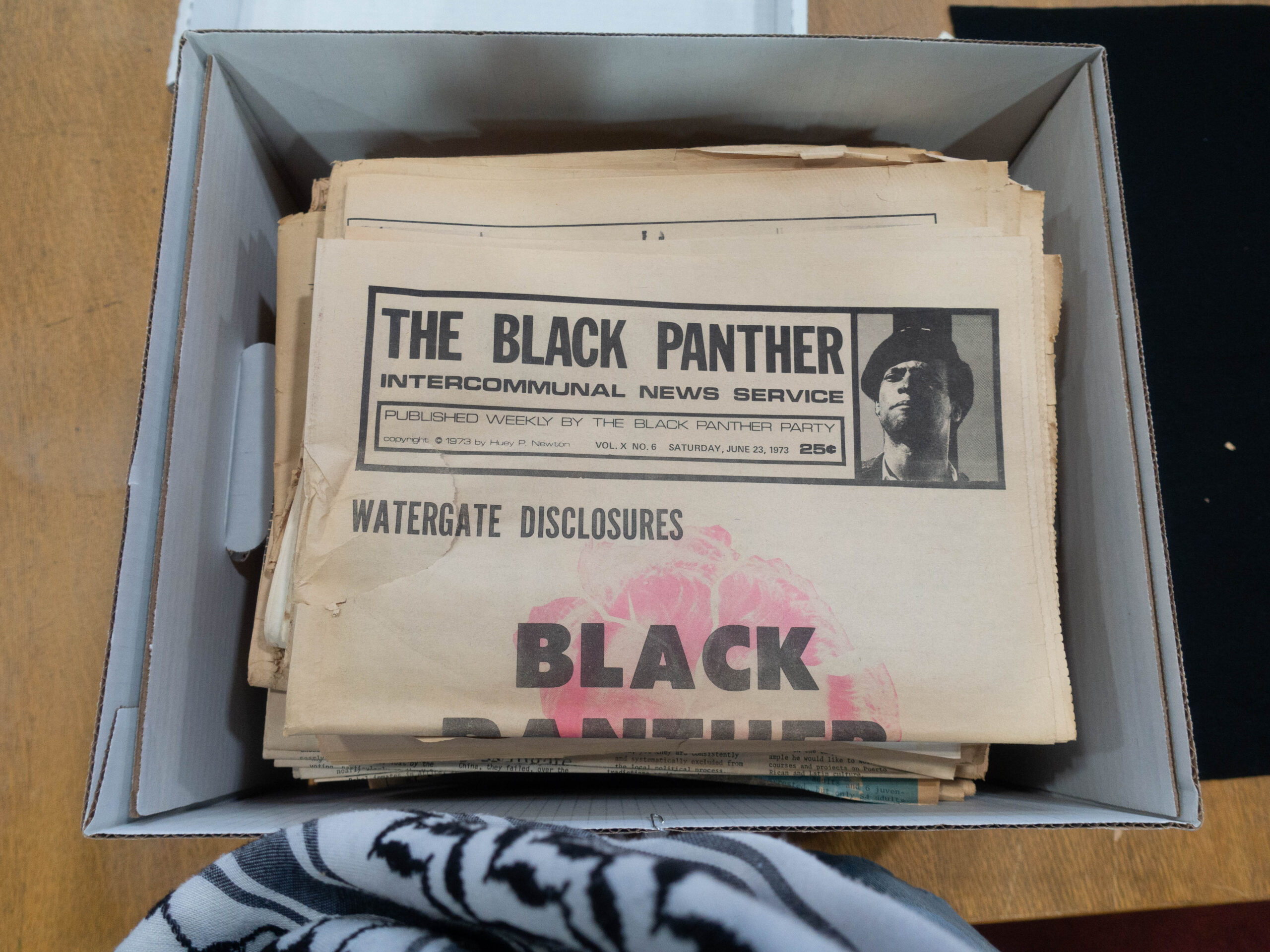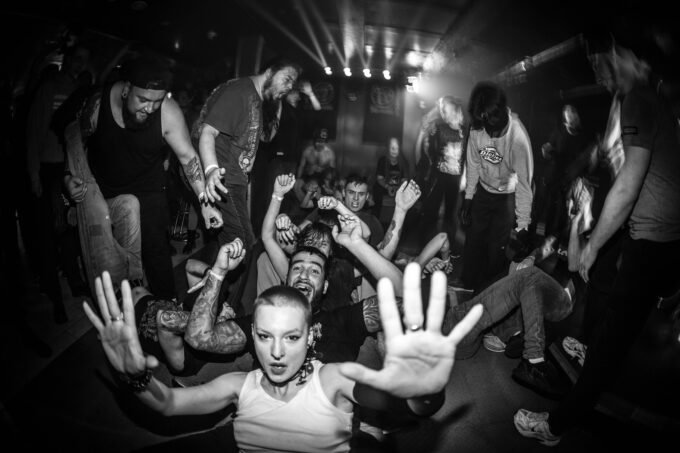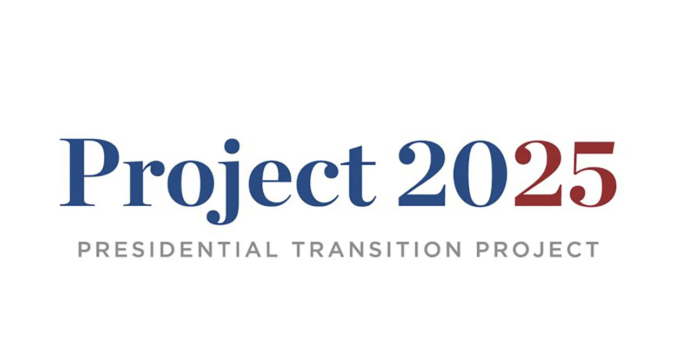

UNRWA school in Gaza being used as a shelter by Palestinian refuges, bombed by Israelis. Photo: UNRWA.
State Terrorism in the Age of Killing Zones
What sets Israel’s war on Gaza apart is not only its violent military operations, marked by the indiscriminate killing of women and children, but also its relentless assault on dissent, criticism, and even the mildest opposition to its internationally condemned human rights violations and war crimes. Israel’s ongoing and brutal military campaign, coupled with its “policies of extreme inhumanity against the Palestinian people,” is inextricably linked to a state-sanctioned effort to legitimize and normalize its actions in Gaza.[1] This includes waging an ideological war of censorship and defamation against any challenge—no matter its source—to what Kenneth Roth, co-founder of Human Rights Watch, condemns as “Israel’s system of apartheid,” [2] and what Aryeh Neier, Holocaust survivor and co-founder of Human Rights Watch, describes as “genocide against Palestinians in Gaza.” [3]
The full scope of Israel’s assault on Gaza is revealed through its relentless military actions, characterized by indiscriminate violence against women, children, the elderly, and non-combatants. According to the Euro-Med Human Rights Monitor, the scale of destruction imposed on Gaza is not only devastating but ethically unimaginable. Since the start of the war, and as of the end of November 2023, Israel has reportedly dropped over 25,000 tons of explosives on the Gaza Strip, a force equivalent to two nuclear bombs. This means that the destructive power of the explosives dropped on Gaza in just over two months exceed that of the bomb dropped on Hiroshima.[4] According to the Rome Statute of the International Criminal Court, the use of such highly destructive bombs in residential areas constitutes a war crime.
The consequences of these bombings were tragically displayed on August 10, 2024, when Israel bombed the Tab’een School in Gaza, a distressingly common occurrence. The school had provided shelter to nearly 2,500 people fleeing demolished areas, many of whom were children. The Israeli bombs targeted a prayer hall at dawn, where hundreds were praying. According to an investigation by Euro-Med Monitor, “over 100 Palestinians were killed, including several [entire] families.” The bombs’ immense destructive power reduced victims’ bodies to shredded and burned remains, leaving numerous others with severe injuries.[5] CNN reported that Fares Afana, director of Ambulance and Emergency Services in northern Gaza, stated that all those targeted “were civilians—unarmed children, the elderly, men, and women.”[6] Euro-Med Monitor found no evidence that the school “was being used for military objectives.”[7] Despite the documented evidence of Israel’s ongoing killings, abductions, forced starvation, and torture of Palestinians, including children,[8] Netanyahu and his cabinet members have astonishingly claimed that Israel has “the most moral army in the world.”[9]
Israel has killed over 40,000 Palestinians. Save the Children reports that “more than 15,000 children are estimated to have been killed by Israel’s relentless assault on the strip [while estimating]that up to 21,000 are missing.”[10] The overall number of deaths may be vastly understated. Rasha Khatib, Martin McKee, and Salim Yusuf, three health officials, stated in The Lancet, a prestigious peer-reviewed British medical journal, that as a result of deaths caused by indirect rather than direct violence it is likely that the actual number of deaths is closer to 186,000.[11] Andre Damon writing on the World Socialist Web Site observes that Israel is waging a war of extermination against the Palestinian people and its aim is to not only “…massacre tens of thousands but also to destroy all aspects of civilization in Gaza, contributing to the deaths of tens of thousands through malnutrition, communicable diseases and lack of healthcare.”[12] The egregious horror of this violence is underscored by its engagement in acts of profound brutality, including the bombing of schools, the torture of prisoners,[13] the use of starvation as a weapon, and the targeting of hospitals and a large part of Gaza’s health facilities, among other barbarous policies.
Such acts have been condemned as genocide by legal groups like the Center for Constitutional Rights, over 50 governments including South Africa, and various United Nations agencies and non-governmental organizations.[14]Additionally, the International Criminal Court (ICC) is considering a request by the court’s prosecutor, Karim Khan, to issue arrest warrants against Prime Minister Benjamin Netanyahu and Israeli Defense Minister Yoav Gallant for committing “war crimes against humanity in the Gaza Strip.”[15] Khan has also requested similar arrest warrants for certain Hamas leaders.
As Jewish scholar Judith Butler points out, Israel’s far-right leaders have been both public and unapologetic about their eliminationist plans following the Hamas attack on October 7th. Their goal has been to systematically undermine “the livelihood, the health, the well-being, and the capacity [of the Palestinians] to persist” amidst Israel’s vengeful and disproportionate military assault. [16] After the surprise Hamas terrorist attack, Israeli Defense Minister Yoav Gallant called for a complete siege of Gaza, declaring, “There will be no electricity, no food, no fuel, everything is closed. We are fighting human animals, and we act accordingly.” [17] Some Israeli ministers have called for the dropping of an atomic bomb on Gaza.[18]
In a statement that defies moral and legal boundaries, Israel’s finance minister, Bezalel Smotrich, claimed that “no one in the world will allow us to starve 2 million people, even though it might be justified and moral in order to free the hostages.”[19] Smotrich’s remark not only trivializes the suffering of millions but also overlooks a critical fact: the deliberate starvation of civilians is unequivocally a war crime. This is the language of fascist politicians who speak with the weight of corpses in their mouths and blood on their hands. Such dehumanizing rhetoric doesn’t merely target Hamas fighters; it extends to the entire population of Gaza, effectively labeling all Palestinians as terrorists and less than human. By dehumanizing an entire group, this rhetoric facilitates and legitimizes Israel’s oppression of all Palestinians, justifying the denial of basic human needs and the commission of war crimes.
The ultimate aim of Israel’s war in Gaza appears to be the eradication of any possibility of a Palestinian state and the eventual expulsion of Palestinians from their land. This is evident in the “complete siege” taking place in Gaza, and Netanyahu’s explicit opposition to the future existence of a Palestinian state. Given Israel’s current assault on Gaza, which has nearly obliterated the daily survival prospects of its inhabitants, this aim becomes clearer. Sharon Zhang underscores this point by noting that Netanyahu has explicitly stated his intent “to quash any hope of the existence of a Palestinian state in its entirety.” [20] She writes:
“Advocates for Palestinian rights have said that this has been Israeli officials’ plan all along, as Israeli forces slaughter Palestinians en masse in Gaza while working to erase evidence that Palestinians ever existed in the region. However, this is one of the clearest statements yet from Netanyahu himself amid the current siege, suggesting his confidence that he will be able to carry it through with help from allies like the U.S.[21]”
In a number of articles, Kenneth Roth has written eloquently about Israel’s violations of international law.[22] He argues that none of Hamas’s actions, however horrific, justify Israel’s violation of the laws of war. He states that “that the Israeli government has repeatedly violated international humanitarian law in ways that amount to war crimes.” He points to Israel’s attack on civilian structures including schools, museums, and libraries. He cites Haaretz’s claim that “Israel has created ‘kill zones’ where soldiers shoot anyone who enters, armed or not.” He points to Israel’s destruction of hospitals, its torture of detained Palestinians and how some detainees “have died in military custody [while others] have reportedly needed to have their limbs amputated due to injuries sustained from prolonged handcuffing. He argues that the Israeli government has “imposed enormous obstacles to the delivery of aid, particularly food—a policy that amounts to using starvation as a weapon of war.”[23] What Roth makes clear and what many Western nations have ignored is that Israel is a rogue state guilty of horrendous war crimes and has repeatedly violated international law.
War crimes do more than destroy bodies; they erode morality, memories, and the deeply rooted habits of public consciousness. The brutality of Israel’s military actions in Gaza is painfully evident in the images of children’s bodies, torn apart amidst bombed mosques, hospitals, and schools. These atrocities are often justified by a discourse of dehumanization and self-defense—a state-sanctioned narrative as morally appalling as the suffering it enables, particularly among the most vulnerable. What is frequently overlooked, especially by mainstream media, is that Israel’s war on Gaza is not just a physical assault but an attack on history, memory, and cultural institutions. This erasure is a calculated effort to obscure its war crimes, brutal violence, and history of settler colonialism, all cloaked “under the security of the blanket of historical amnesia.”[24]
Scholasticide as a Structural and Ideological War
Genocide manifests itself not only in the creation of “kill zones,” where soldiers indiscriminately shoot Palestinians and in the use of lethal force against non-military targets such as hospitals and schools but also in the systematic destruction of Gaza’s entire intellectual, cultural, and civic infrastructure.[25] This calculated erosion seeks to eliminate the very fabric of Gaza’s society, extending beyond physical violence to the obliteration of its historical and cultural identity.[26]
The ongoing and increasingly meticulous documentation of Israel’s war crimes not only exposes the horrific realities on the ground but also sheds light on the broader implications of these violations. The unfolding crisis extends beyond the immediate brutality and physical destruction in Gaza, revealing a deeper, insidious form of violence that transcends the battlefield. This violence is rooted in an ideological agenda that legitimizes such barbarism while systematically attacking any form of education and criticism that seeks to expose it. This assault manifests as both a soft and hard war on education, history, critical inquiry, and any viable movement of dissent. Karma Nabulsi of the University of Oxford called this “war on education” a form of scholasticide and argued that it would affect generations of Palestinian children.[27] At the heart of this war on dissent and education are repeated attempts by Israel’s right-wing government to dismiss all critiques of Israel’s war on Gaza as a form of antisemitism. For example, when the war on Gaza is occasionally contextualized and historicized in reports, the Israeli government and its defenders swiftly weaponize the charge of antisemitism against critics, especially Palestinians, but also Jews. Historian Ilan Pappe highlights how this accusation is wielded by Israel’s far-right government to silence not only critics of the war but any narrative that exposes its five-decade-long campaign by “occupational forces to inflict persistent collective punishment on the Palestinians… exposing them to constant harassment by Israeli settlers and security forces and imprisoning hundreds of thousands of them.”[28]
The expansive, indiscriminate, and staggering violence unleashed on Gaza by Israel demands not only a new vocabulary but also a deeper understanding of the politics of education and the education of politics. It also requires a redefined comprehension of what constitutes a war crime, coupled with a mass international movement resisting the far-right Israeli government’s deliberate and brutal attacks on the Palestinian people and their quest for freedom and sovereignty. Additionally, it is crucial to recognize that this violence in its multiple forms, includes a less visible form of violence that is often overlooked. This form of violence, frequently obscured by the genocidal slaughter and annihilation unfolding in Gaza, is the violence of organized forgetting—the systematic erasure of dangerous memories, histories, and collective remembrance.
This is the violence of “scholasticide.” This type of violence seeks to erase the Nakba from history, to destroy institutions that preserve the memory of the forced removal of 700,000 Palestinians from their land, and to enforce historical amnesia as a means of preventing future generations from learning about Palestinian resistance against colonial violence, dispossession, and erasure that has persisted for decades. Isabella Hammad, British-Palestinian author, rightly expresses outrage on how the pedagogical incubators of soft scholasticide work to condemn Palestinian protesters and cover up crimes of genocide. She is worth quoting at length:
“Israel’s war in Gaza targets not only memory, knowledge, and critical inquiry but also extends to the destruction of educational institutions where history exposes past crimes and the movements for liberation and resistance. This is a war waged not just against bodies but also against history itself—against memories, legacies of cruelty, schools, museums, and any space where a people’s history and collective identity are preserved and transmitted to present and future generations. This assault on historical consciousness, remembrance, critical ideas, and the enduring history of settler colonialism represents a form of ideological violence that strategically underpins the tangible, bloody war that destroys Palestinian lives and the institutions safeguarding vital memories. In this context, the concept of “scholasticide” emerges, signifying the deliberate destruction of educational spaces that pass on essential knowledge, memories, and values, becoming a central element in Israel’s broader war against the Palestinian people.[29]”
As a form of historical, political and social amnesia, scholasticide works through what Rob Nixon calls “slow violence” — a gradual, incremental, and often less visible form of harm. In this context, scholasticide manifests through verbal contortions marked by diversions, lies, fear, threats, and intimidation. Language, images, and sensationalized tsunamis of hate across various media outlets and platforms are used to distract people from the crimes taking place in Gaza. As a result, scholasticide works to normalize the bloody war on Gaza and suppress free speech. However, it is crucial to recognize that scholasticide also takes on a more brutal and immediate expression in what I call the “savage structural violence of scholasticide.” This form of scholasticide targets the destruction of schools, universities, and museums while systematically repressing dissenting scholars, students, and others. It involves real weapons of mass destruction, attacking not just bodies and minds but also the institutions that sustain intellectual life.
In what follows, I will analyze the brutal structural violence of scholasticide taking place in Gaza, where educational institutions are systematically targeted and destroyed. I will then examine the ideological violence of scholasticide, characterized by the suppression of free speech and academic freedom, increasingly enforced through state mechanisms of surveillance, job losses, and other punitive measures, including detention. These two forms of scholasticide are not isolated; they reinforce each other, serving a larger project of imposing a repressive state in Israel. This analysis will also reveal how these practices signal a broader, insidious trend in the West, where censorship, repression, and various forms of pedagogical terrorism are aggressively deployed to suppress dissent and critical thought, leading to a brutal global trajectory of intellectual and academic oppression. These two forms of scholasticide—ideological and structural—are deeply interconnected. The ideological assault on free speech and academic freedom lays the groundwork for the physical destruction of institutions essential to critical education as a practice of freedom and liberation. In this way, the ideological forces of scholasticide act as a precursor and precondition for the eventual annihilation of the very foundations of emancipatory education.
Scholasticide in Gaza
Israel’s brutal war in Gaza not only targets bodies but also attacks the preservation of history, knowledge, and critical thought. By destroying educational institutions, it aims to erase narratives of past crimes and Palestinian movements for liberation. This is a war against history itself—against memories, legacies of resistance, and the institutions that safeguard a people’s collective identity for future generations. The repression of historical consciousness and the history of settler colonialism is a form of ideological violence that fuels the ongoing conflict devastating Palestinian lives and erasing vital memories. This deliberate destruction of educational institutions, spaces, and history, known as “scholasticide,” is central to Israel’s broader war against the Palestinian people. Chandni Desai, writing in The Guardian, describes scholasticide as an act of ethical savagery and pedagogical repression, noting: “It obliterates the means by which a group—in this instance, Palestinians—can sustain and transmit their culture, knowledge, history, memory, identity, and values across time and space. It is a key feature of genocide.” [30]
The structural violence of scholasticide in Gaza since the horrific October 7th Hamas attack is undeniable and practically unthinkable. The world has witnessed Israel’s deliberate targeting of schools, universities, and other cultural sites in Gaza. As Sharon Zhang notes, “It is a war crime to target civilian infrastructure in war, but Israel has a long history of flagrantly violating international law with impunity — including targeting educational institutions that preserve Palestinian history, identity, and culture.”[31] According to the UN, 90 percent of Gaza’s schools have been destroyed, and all 12 universities have been bombed, damaged, or reduced to rubble. Chandni Desai reports that “approximately 90,000 Palestinian university students have had their studies suspended; many will be driven to forced displacement through genocide, as Gaza has become uninhabitable.”[32] It gets worse. UN officials and the Palestinian ministry of education report that Israeli military operations have killed at least 5,479 students, 261 teachers, and 95 university professors in Gaza, including deans, university presidents, award-winning physicists, poets, artists, and prominent activists. [33]
Schools in Gaza faced significant challenges even before the war, including overcrowding, double shifts, a shortage of buildings, and restricted access to construction materials and school supplies. As Stephen McCloskey highlights, “in June 2022, Save the Children reported that 80 percent of children in Gaza were ‘in a perpetual state of fear, worry, sadness, and grief.”[34] The war has only exacerbated these issues, leaving Gaza’s youth to grapple with repeated traumas, mental health crises, and the constant threat of death or injury. These hardships are compounded by extreme poverty, continuous violence, forced displacement, and inadequate health care.
Moreover, the brutal realities extend beyond the battlefield. It is well-documented that many children held without charge in Israeli detention centers have been subjected to physical, sexual, and mental abuse. Save the Children has collected testimonies from children that reveal increasing levels of violence, particularly since October, when stricter rules were implemented that block visits from parents or lawyers. Some children have reported broken bones and beatings, highlighting the severe abuse occurring in these detention centers.”[35] Amid such a dire humanitarian crisis, Palestinian children and their parents are left with an agonizing choice: “between dying of exposure, disease, bombs, starvation, infectious disease, or leaving.” [36] This grim reality underscores that the destruction of Gaza’s education system is part of a broader campaign by Israel to render the region unlivable.
Israel’s war on education and culture extends further, targeting the very fabric of Gaza’s identity. The bombing and destruction of numerous libraries, archives, publishing houses, cultural centers, activity halls, museums, bookstores, cemeteries, monuments, and archival materials illustrate a systematic effort to erase Palestinian heritage. [37] Various news outlets and social media have provided stories and images confirming that Israeli soldiers are not only destroying but also stealing archeological artifacts. In one particularly egregious instance reported on social media, stolen artifacts from the Gaza Strip were openly displayed in a small showcase in the Israeli parliament, known as the Knesset. [38]
Israel’s policy of scholasticide, aimed at destroying Palestinian education, especially its less violent methods, are not limited to Gaza. They also extend to students, faculty, and other critics of the war within Israel. Israeli scholar, Professor Maya Wind, argues that Israel’s universities have become centers of military research, propaganda, and repression.[39] For instance, she notes . that “academic disciplines, degree programs, campus infrastructure, and research laboratories service Israeli occupation and apartheid.” She is worth quoting at length:
“Hebrew University, among others, are training intelligence soldiers to create target banks in Gaza. They are producing knowledge for the state… which is state propaganda, or legal scholarship to help thwart attempts to hold Israel accountable for its war crimes, such as the case brought to the ICJ by South Africa. And they are, in fact, actually granting university course credit to reserve soldiers returning from Gaza to their classrooms. So, Israeli universities are deeply complicit in this genocide.[40]”
Writing in The New York Review of Books In addition, Neve Gordon and Penny Green reported that Shalhoub-Kevorkian, a Palestinian citizen of Israel, who is the Lawrence D. Biele Chair in Law at the Hebrew University of Jerusalem was arrested for signing a petition titled “Childhood Researchers and Students Calling for Immediate Ceasefire in Gaza.”[41] She was one of many Palestinian educators intimidated by the far-right Netanyahu government for criticizing the war.[42] The reach of Israeli state censorship and punishment also includes Jewish faculty members such as the renowned Professor Peled-Elhanan subjected to a disciplinary hearing because she sent messages on a staff WhatsApp that was deemed supportive of Hamas.
Gordon and Green also noted that “in the three weeks following Hamas’s attack, well over a hundred Palestinian students in Israel, nearly 80 percent of them women, faced disciplinary actions for private social media posts that supported the end of the siege on Gaza… expressed empathy with Palestinians in the Strip, or simply included memes about suffering Palestinian children.”[43] Attempts by the Israeli state to destroy education in Palestine is part of a broader project to destroy any vestige of a liberation movement in Palestine. Wind notes this is obvious not only in terms of the repression of Palestinian critics in Gaza and Israel, but also in the West Bank, including West Jerusalem. She states that Palestinian universities are routinely raided by the IDF. She adds:
“Student activists and organizers in over 411 Palestinian student groups and associations that have been declared unlawful by the Israeli state are routinely abducted from their campus, from their homes in the middle of the night. They are subjected to torture. They are held in administrative detention without charge or trial for months. And so, what we’re really seeing is a systemic attack of the Israeli military and the Israeli military government on Palestinian higher education, and particularly on Palestinian campuses as sites of organizing for Palestinian liberation.[44]”
Conclusion
What stands out regarding Israel’s policy of scholasticide is not only the visceral killing, suffering, and terror inflicted upon the Palestinian people in Gaza but also the calculated effort to obliterate institutions that preserve Palestinian history, educate current and future generations, and forge links between the past and a future of freedom and justice. This is not just an assault on memory; it is an attack on the very essence of education as a liberating force—indispensable for a society where informed judgment, civic courage, and critical agency are essential to upholding the ideals of freedom and justice through mass resistance.
It is crucial for critical educators and anti-war activists to acknowledge that this war on education in Gaza parallels the ongoing assault on higher education in the United States and other authoritarian regimes, revealing a disturbing global alignment in the attack on intellectual freedom and historical truth. The strategy of scholasticide is both a violent structural project and a calculated ideological and pedagogical effort to silence dissent within and outside of higher education, particularly dissent that holds Israel’s genocidal war and its apparatuses of ideological indoctrination and repression accountable. The horrors unfolding in Gaza represent the extreme endpoint of a broader, insidious campaign aimed at crushing dissent across universities in the United States, Europe, and beyond, including nations like Hungary. In the U.S., schools and cultural institutions may not be bombed, but they are systematically defunded and turned into fortresses of academic repression. Books are banned, student protesters face police brutality, faculty are purged, and history is whitewashed. Meanwhile, billionaire elites and administrative enforcers ruthlessly work to “engineer the intellectual, social, and financial impoverishment of the educational sector,” silencing anyone who dares to challenge their pursuit of national and ideological conformity.[45]
Scholasticide is a modern form of McCarthyism that intensifies from silencing opposition to the outright destruction of academic and cultural institutions that enable both individual and collective resistance. It begins by targeting informed judgment, historical memory, and dissent, and then escalates to obliterating civic infrastructures like schools and museums. In its wake, it leaves a trail of bloodshed, broken limbs, wounded women and children, and a chilling legacy of violence, mass deaths, and ethical emptiness. Scholasticide is the canary in the coal mine, signaling an imminent and grave threat to academic freedom, free speech, critical education, and democracy itself.
Notes.
[1] Gerald Sussman, “The US-Israeli Regime of Despair,” Counter Punch (July 21, 2024). Online: https://www.counterpunch.org/2024/07/21/the-us-israeli-regime-of-despair/
[2] Kenneth Roth, “Crimes of War in Gaza” The New York Review of Books [July 18, 2024]. Online: https://www.nybooks.com/articles/2024/07/18/crimes-of-war-in-gaza-kenneth-roth/
[3] Aryeh Neier, “Is Israel Committing Genocide?” The New York Review of Books[June 6, 2024]. Online: https://www.nybooks.com/articles/2024/06/06/is-israel-committing-genocide-aryeh-neier/
[4] HuMedia, “Israel hits Gaza Strip with the equivalent of two nuclear bombs,” Euro-Med Human Rights Monitor (November 2, 2023). Online: https://euromedmonitor.org/en/article/5908/Israel-hits-Gaza-Strip-with-the-equivalent-of-two-nuclear-bombs#:~:text=Geneva%20%2D%20Israel%20has%20dropped%20more,a%20press%20release%20issued%20today
[5] Editorial, “Initial Euro-Med Monitor investigation finds no evidence of military presence at site of Tab’een School massacre in Gaza,” Countercurrents.org (August 24, 2024). Online: https://countercurrents.org/2024/08/initial-euro-med-monitor-investigation-finds-no-evidence-of-military-presence-at-site-of-tabeen-school-massacre-in-gaza/
[6] Irene Nasser, Abeer Salman, Ibrahim Dahman, Mohammed Tawfeeq, Lex Harvey and Allegra Goodwin, “Israeli strike on mosque and school in Gaza kills scores, sparking international outrage,” CNN World (August 11, 2024). Online: https://www.cnn.com/2024/08/10/middleeast/israeli-school-strike-gaza-intl-hnk/index.html
[7] HuMedia, “Initial Euro-Med Monitor investigation finds no evidence of military presence at site of Tab’een School massacre in Gaza,” Euro-Med Human Rights Monitor (August 11, 2024). Online: https://euromedmonitor.org/en/article/6432/Initial-Euro-Med-Monitor-investigation-finds-no-evidence-of-military-presence-at-site-of-Tab%E2%80%99een-School-massacre-in-Gaza
[8] Miranda Cleland, “Why Israel can torture detained Palestinian children with impunity,” Middle East Eye (December 1, 2023). Online: https://www.middleeasteye.net/opinion/israel-palestine-war-torture-detained-palestinian-children-impunity
[9] Greg Shupak, “Israel may have the least ‘moral army’ in the world: The rate of civilian death during Israel’s assault on Gaza has few precedents this century,” Canadian Dimension (February 17, 2024). Online: https://canadiandimension.com/articles/view/israel-may-have-the-least-moral-army-in-the-world
[10] Arwa Mahdawi, “Nearly 21,000 children are missing in Gaza. And there’s no end to this nightmare” The Guardian [June 27, 2024]. Online: https://www.theguardian.com/global/commentisfree/article/2024/jun/27/gaza-missing-children
[11] Rasha Khatib, Martin McKee, Salim Yusuf, “Counting the dead in Gaza: difficult but essential” The Lancet [July 5, 2024]. Online: https://www.thelancet.com/journals/lancet/article/PIIS0140-6736(24)01169-3/fulltext
[12] Andre Damon, “Lancet warns Gaza death toll could be over 186,000,” World Socialist Web Site (July 7, 2024). Online: https://www.wsws.org/en/articles/2024/07/08/xgqe-j08.html
[13] Press Release, “UN report: Palestinian detainees held arbitrarily and secretly, subjected to torture and mistreatment,” United Nations Human Rights (July 31, 2024). Online: https://www.ohchr.org/en/press-releases/2024/07/un-report-palestinian-detainees-held-arbitrarily-and-secretly-subjected
[14] Gerald Imray, “Genocide case against Israel: Where does the rest of the world stand on the momentous allegations?,” Associated Press (January 14, 2024). Online: https://apnews.com/article/genocide-israel-palestinians-gaza-court-fbd7fe4af10b542a1a4e2c7563029bfb;
[15] Mike Corder, “International Criminal Court judges mulling arrest warrants consider legal arguments on jurisdiction,” Associated Press(August 9, 2024). Online: https://apnews.com/article/israel-palestinians-icc-court-warrants-jurisdiction-12df89805cf654df030a56264ad38bb8#:~:text=THE%20HAGUE%2C%20Netherlands%20(AP),attacks%20by%20Hamas%20in%20Israel.
[16] Amy Goodman, “Palestinian Lives Matter Too: Jewish Scholar Judith Butler Condemns Israel’s “Genocide” in Gaza.” Democracy Now[October 26, 2023]. Online: https://www.democracynow.org/2023/10/26/judith_butler_ceasefire_gaza_israel
[17] Sanjana Karanth, “Israeli Defense Minister Announces Siege On Gaza To Fight ‘Human Animals’,” The Huff Post (October 9, 2023). Online: https://www.huffpost.com/entry/israel-defense-minister-human-animals-gaza-palestine_n_6524220ae4b09f4b8d412e0a
[18] Patrick Kingsley, “Top U.N. Court Decision Adds to Israel’s Growing Isolation” New York Times [May 24, 2024]. Online: https://www.nytimes.com/2024/05/24/world/middleeast/icj-israel-rafah-isolation.html
[19] Guardian Staff and Agencies, “Israel minister condemned for saying starvation of millions in Gaza might be ‘justified and moral’,” The Guardian (August 8, 2024). Online: https://www.theguardian.com/world/article/2024/aug/08/israel-finance-minister-bezalel-smotrich-gaza-starve-2m-people-comments
[20] Sharon Zhang, “Netanyahu Says Israel’s Goal Is to Wipe Out All Possibility of Palestinian State,” Truthout (January 18, 2024). Online: https://truthout.org/articles/netanyahu-says-israels-goal-is-to-wipe-out-all-possibility-of-palestinian-state/#:~:text=War%20%26%20Peace-,Netanyahu%20Says%20Israel’s%20Goal%20Is%20to%20Wipe%20Out%20All%20Possibility,amid%20Israel’s%20genocide%20in%20Gaza.&text=Honest%2C%20paywall%2Dfree%20news%20is,a%20donation%20of%20any%20size.
[21] Ibid.
[22] Kenneth Roth, “Crimes of War in Gaza” The New York Review of Books [July 18, 2024]. Online: https://www.nybooks.com/articles/2024/07/18/crimes-of-war-in-gaza-kenneth-roth/; See also, an interview with Roth in Carolyn Neugarten, “The Right Fight” The New York Review [July 27, 2024]. Online: https://www.nybooks.com/online/2024/07/27/the-right-fight-kenneth-roth/
[23] All of the quotes in this paragraph are from Kenneth Roth, “Crimes of War in Gaza” The New York Review of Books [July 18, 2024]. Online: https://www.nybooks.com/articles/2024/07/18/crimes-of-war-in-gaza-kenneth-roth/
[24] Donalyn White, Anthony Ballas, “Settler Colonialism and the Engineering of Historical Amnesia” Counter Punch [July 11, 2024]. Online: https://www.counterpunch.org/2024/07/11/settler-colonialism-and-the-engineering-of-historical-amnesia/
[25] See, Kenneth Roth, “Crimes of War in Gaza” The New York Review of Books [July 18, 2024]. Online: https://www.nybooks.com/articles/2024/07/18/crimes-of-war-in-gaza-kenneth-roth/. A brilliant, critical, and encompassing analysis of Israel’s war crimes can be found in Jeffrey St. Clair’s Gaza Dairy Archives published in CounterPunch.
[26] Gaza Academics and Administrators, “Open letter by Gaza academics and university administrators to the world.” Al Jazeera [May 29, 2024]. Online: https://www.aljazeera.com/opinions/2024/5/29/open-letter-by-gaza-academics-and-university-administrators-to-the-world
[27] Faisal Bhabha, Heidi Matthews, Stephen Rosenbaum, “OPEN LETTER FROM NORTH AMERICAN ACADEMICS CONDEMNING SCHOLASTICIDE IN GAZA” Google Docs [April 2024]. Online: https://docs.google.com/forms/d/e/1FAIpQLSc7_K7qybzbeiBAg7sYTxbp1VOyYBrYPaxRf8jvHuBa0kQHlg/viewform?pli=1
[28] Ilan Pappe, “Why Israel wants to erase context and history in the war on Gaza.” Al Jazeera [November 5, 2023]. Online: https://www.aljazeera.com/opinions/2023/11/5/why-israel-wants-to-erase-context-and-history-in-the-war-on-gaza
[29] Isabella Hammad, “Acts of Language” The New York Review of Books [June 13, 2024]. Online: https://www.nybooks.com/online/2024/06/13/acts-of-language-isabella-hammad/
[30] Chandni Desai, “Israel has destroyed or damaged 80% of schools in Gaza. This is scholasticide” The Guardian [June 8, 2024]. Online: https://www.theguardian.com/commentisfree/article/2024/jun/08/israel-destroying-schools-scholasticide
[31] Sharon Zhang, “Israel Bombs Girls’ School in Gaza, Killing 30 and Wounding Over 100,” Truthout (July 29, 2024). Online: https://truthout.org/articles/israel-bombs-girls-school-in-gaza-killing-30-and-wounding-over-100/
[32] Ibid. Chandni Desai.
[33] Chris Hedges, “Israel destroyed my university. Where is the outrage?” The Real News [February 9, 2024]. Online: https://therealnews.com/israel-destroyed-my-university-where-is-the-outrage
[34] Stephen McCloskey, “Israel’s War on Education in Gaza” Z Network [January 8, 2024]. Online: https://znetwork.org/znetarticle/israels-war-on-education-in-gaza/
[35] News Release, “Palestinian children in Israeli military detention report increasingly violent conditions,” Save the Children (February 29, 2024). Online: https://www.savethechildren.net/news/palestinian-children-israeli-military-detention-report-increasingly-violent-conditions
[36] Chris Hedges, “Israel destroyed my university. Where is the outrage?” The Real News [February 9, 2024]. Online: https://therealnews.com/israel-destroyed-my-university-where-is-the-outrage
[37] Ibid. Chandni Desai.
[38] Palestine Chronicle Staff, “Israeli Forces Display Stolen Gaza Artifacts in Knesset,” The Palestine Chronicle (August 14, 2024). Online: https://www.palestinechronicle.com/israeli-forces-display-stolen-gaza-artifacts-in-knesset-reports/
[39] Maya Wind, Towers of Ivory and Steel: How Israeli Universities Deny Palestinian Freedom (New York: Verso, 2024).
[40] Amy Goodman, “”Towers of Ivory and Steel”: Jewish Scholar Says Israeli Universities Deny Palestinian Freedom” Democracy Now[March 15, 2024]. Online: https://www.democracynow.org/2024/3/15/maya_wind_towers_of_ivory_and
[41] Neve Gordon and Penny Green, “Israel’s Universities: The Crackdown” The New York Review of Books [June 5, 2024]. Online: https://www.nybooks.com/online/2024/06/05/israel-universities-the-crackdown/
[42] Ibid. Maya Wind.
[43] Ibid. Neve Gordon and Penny Green.
[44] Amy Goodman, “Maya Wind: Destruction of Gaza’s Universities Part of Broader Israeli Project to Destroy Palestinian Liberation” Part 2. Democracy Now [March 15, 2024]. Online: https://www.democracynow.org/2024/3/15/maya_wind_part_2
[45] Ruth Ben-Ghiat, “How Authoritarians Target Universities,” Lucid (July 11, 2023). Online: https://lucid.substack.com/p/from-fascism-to-hungary-and-the-us
The post Scholasticide: Erasing Memory, Silencing Dissent, and Waging War on Education from Gaza to the West appeared first on CounterPunch.org.
This content originally appeared on CounterPunch.org and was authored by Henry Giroux.
This post was originally published on Radio Free.



























